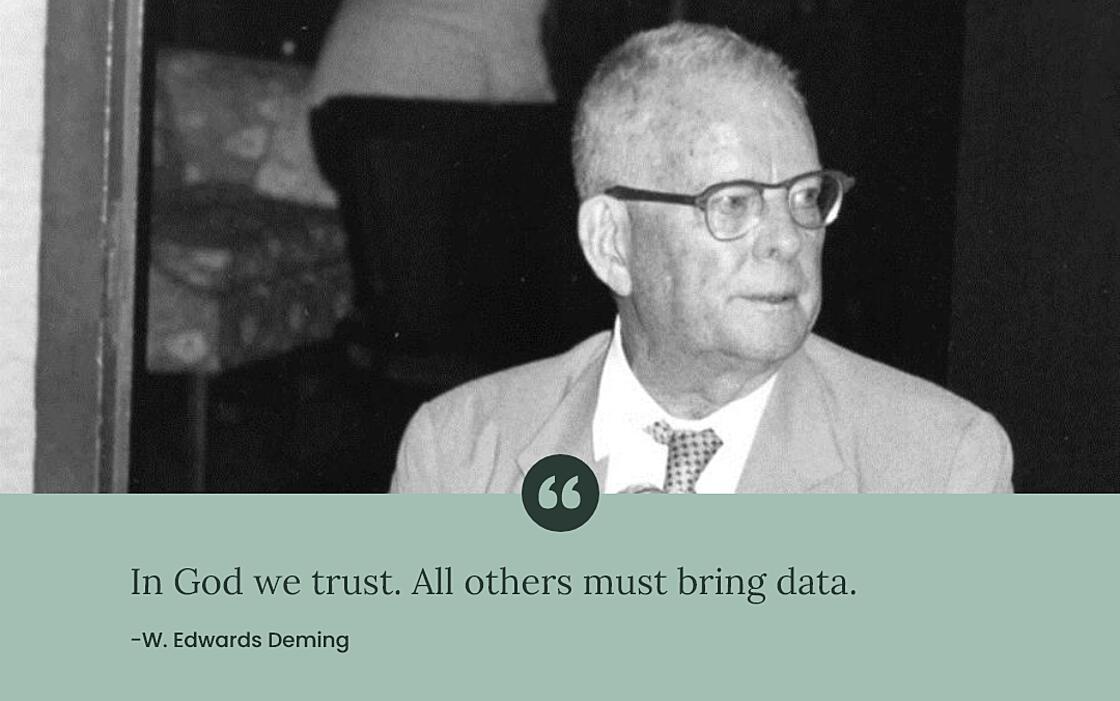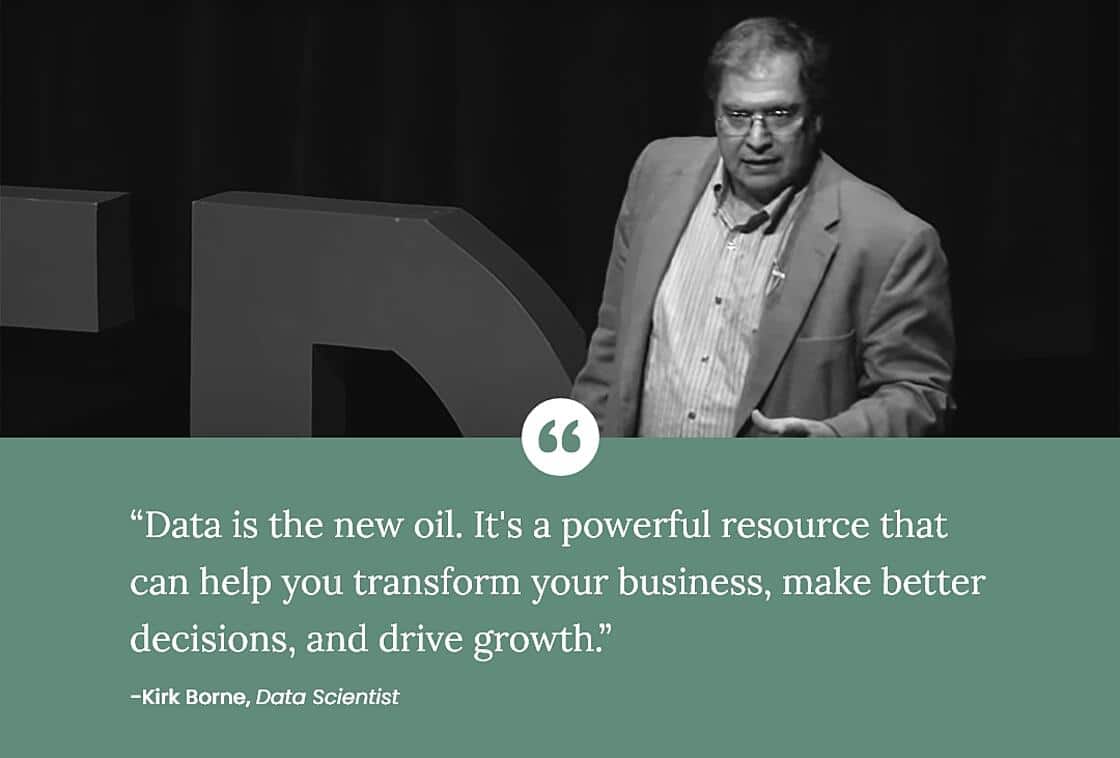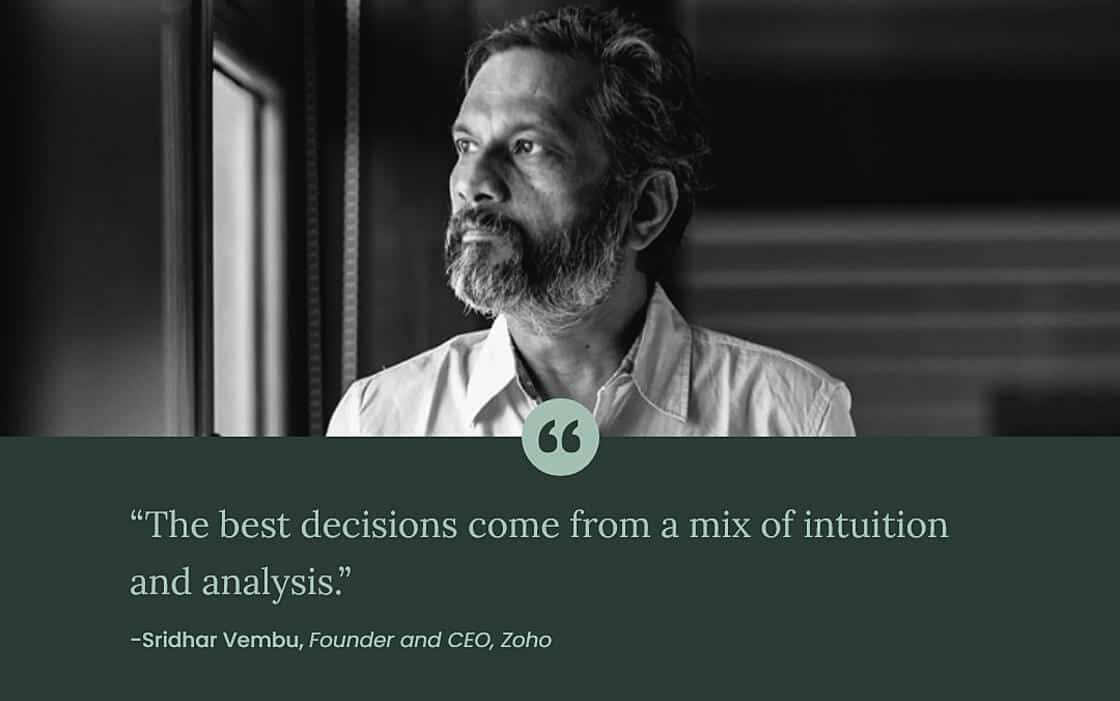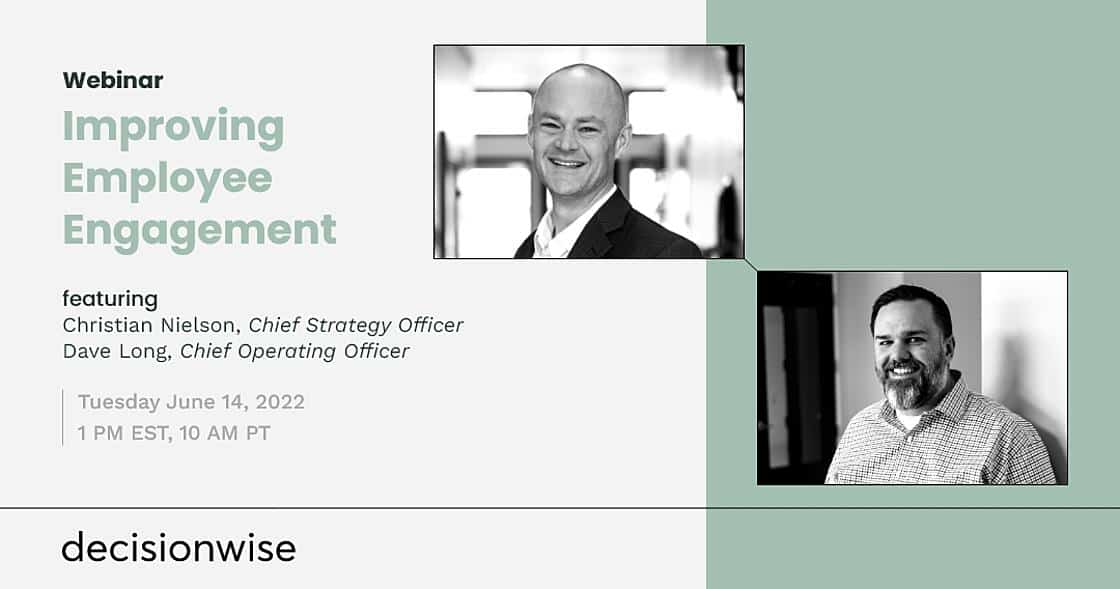Tidbits


So true. In our modern society, our systems and processes are highly complex. This means our decisions are complicated, too. A great way to improve decision-making is to improve the quality of data that informs the decision-making process.


Those that find ways to improve their data and data sources will be the winners in the next 10-15 years.


A good reminder that data alone can’t tell the whole story.
Brilliant on the Basics
We recently received updated survey results for a client, and they reminded us of a key principle in our business. It has to do with action planning for survey results.
If you uncover a problem in the results, look for a solution, then work on implementing the answer, and you will see positive results.
It’s axiomatic: we improve what we pay attention to, and this sentiment can be encapsulated in a famous quote attributed to the management expert, Peter Drucker, “What gets measured gets improved.”
In one area of this client’s survey, they started tracking how frequently feedback was being provided to employees by their managers. That’s all they did. What happened to their scores in this area? They went up by nine percentage points in one year. They simply tracked what was happening and managers caught on quickly.
Featured Discussion
Organizational Caring and the Psychological Contract
In our research, we have many clients that ask their employees whether they agree with this statement: “This organization cares about its employees.” While most organizations find themselves in an acceptable range, some are given an answer that is loud and resounding; “No, you don’t care about us.”
What happens when employees stop believing their organization cares about them? What should leaders do in this situation? Can something be done to reverse things? The key to answering this question is to understand what caring looks like from an organizational perspective.
When we talk about care within a team or between associates, we are talking about personal empathy, small acts of support and kindness, and bonding at an interpersonal level. Care at the organizational level, however, is shown much differently. In our view, organizational care is best demonstrated when an organization honors its Psychological Contract with its employees, and care evaporates when the organization takes actions that undermine employee trust.
The Psychological Contract is the unwritten, implicit set of expectations and obligations that define the terms of what it means to belong to an organization. The Psychological Contract anchors the employee to the organization and helps them understand, even if implicitly, why they are there, why they matter, and why they belong.
An organization’s Psychological Contract can be broken down into four common archetypes, although there are countless variations of the Psychological Contract:
Work as a Family. In this context, employees bond with each other and with the organization as if the workplace is a family dedicated to a common cause. Values and behaviors such as loyalty and sacrifice are highly prized, and the organization is fully invested in giving its employees a place where their personal and work lives blend. Belonging is at a premium. The Employer sets the mission, but employees become fully invested due to a strong sense of family. The employer achieves its mission through a group of highly motivated employees. Work as a family is most often seen in smaller organizations, as it requires tremendous effort the more employees an organization hires.
Work as a Transaction. The employer and employee need each other. The employer needs employee effort, and employees see the employer as way to gain resources to accomplish their personal goals. Work-life and home-life are kept separate. In this situation, the employer defines the mission, and employees are okay with whatever – as long as the transaction is fair. The employer is happy when effort is obtained, and the employee is happy when the paycheck is deposited. The employer uses its employees to succeed at its goals and priorities.
Work as a Scorecard. This archetype views the relationship as transactional, but both parties take the give-and-take nature of the relationship to the extreme. This scenario is characterized by employers competing for talent, always looking for the latest and greatest ways to attract and retain the best talent. Talented employees have a personal brand and are free agents that move around, seeking to maximize their resumes and bank accounts. Both sides are climbing the ladder, seeking even better opportunities. Yet, loyalty is thin. In this archetype, the employer sets the mission, but the employee also cares about the mission because it reflects upon their personal brand. In sum, the employer incentivizes its employees in order to succeed at its mission.
Work as a Partnership. The overall mission is important to both the employer and the employee. There is alignment between employer and employee, and they view each other as partners in achieving a set of common goals. Trust must be high between both parties, and both the employer and employees must pull their weight. When working well, this scenario finds the employer achieving its mission with its employees, and employees see their employer as a place and a path towards achieving their goals. There is strong alignment between employer and employees.
The foundation to the Psychological Contract is that both parties have a good sense of what the contract means and both parties strive to honor their side of the bargain. There is not necessarily a right or wrong archetype or variation on the Psychological Contract to be chosen. The most important consideration is that an organization must be true to the archetype that actually exists. The quickest way to violate trust and to receive low caring scores is to talk as if the Psychological Contract is built upon one archetype but behave according to the rules of another. For example, you can’t promote a family brand, but behave entirely on a transactional basis.
Breaches in the Psychological Contract happen when one party, either the employer or the employees, breaches its commitments. When employees breach the Psychological Contract, results are less dramatic. An employee leaves for a better fit, or the organization forces a separation, but the effects are felt only on a case-by-case basis. When the organization, however, breaches the Psychological Contract, consequences are more acute and widespread; large swaths of employees disengage and look for other opportunities.
Evidence of org-level breaches often involve the following behaviors, which signify low trust:
- Employee concerns remain unaddressed for lengthy periods of time.
- Avenues for employee voice disappear, and the organization stops listening.
- The organization is slow to take action to solve known challenges.
- Employees feel abandoned and wonder if, or when, things will change. “Who knows what will come next?”
- Power is unequal; the implicit message is that the organization has all the power.
- Senior leaders show a lack of empathy and sympathy.
- Rules replace principles. Instead of establishing principles of how the Psychological Contract will be honored, minute rules are used to exert greater control.
- Contributions are viewed as being unequal. It is felt that employees are expected to give heart and soul, while the employer is viewed as giving only what the market demands (i.e., the lowest amount possible).
- Employees want to be treated as stakeholders, but the organization sees them as resources, widgets, or as simple cogs in the machine.
One way to address organizational breaches is to look at things through the lens of trust – knowing that care and trust are highly correlated, if not representative of the same idea. Charles Green developed a trust quotient or trust equation, which he described as follows:

When organizations attempt to recover caring, my advice is to focus on the trust question by doing the following:
1. Remember that engagement, satisfaction, and happiness depend less on the conditions in which one works and more on whether expectations are aligned and met.
2. Your organization isn’t real, your people are. People, not legal entities, get things done. Organizations are what we call a legal fiction; they are simply a name-branded intellectual exercise.
3. Understand and faithfully honor your Psychological Contract. There are six pillars to any strong Psychological Contract:
- Fairness
- Clarity
- Empathy
- Predictability
- Transparency
- Accountability
If leaders follow these six pillars within their Psychological Contract, the rest will take care of itself. Employees will feel valued and cared for, and trust will become a free-flowing lubricant to help get things done.
What’s Happening at DecisionWise

UPCOMING WEBINAR
Every organization has ways they can elevate the experience they are providing their employees, and much of this is tied to improving employee engagement. Join us as Christian Nielson, Chief Strategy Officer, and Dave Long, Chief Operating Officer, discuss how to improve employee engagement.
HR News Roundup
- In this column, a recruiting executive looks at why it’s important for managers to understand the nature of who their employees are and how they operate within the organization to create an atmosphere that enhances and amplifies those elements in order to attract and retain talent.
- How a Third-Party Survey Provider Can Help Employers Address Workplace Concerns, Foster Buy-In, Drive Change
- What a recession means for return-to-office battle between workers and companies?
- Quint Studer, of the Studer Group, talks about ways to retain employees from day one through improved onboarding efforts.
